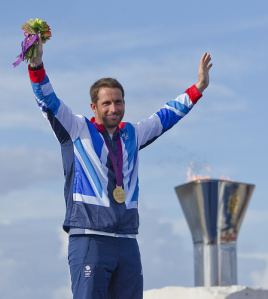 About 15 years ago, I visited the Montreal Olympic Village. A captivating and beautiful city, the Olympic Village was a complete contrast. Tired-looking vacant stadia and vast, mostly unused concrete behemoths populated by a few shuffling tourists. I found it a depressing place and the slowly flaking paint symbolised a squandered enterprise. Costing Canada $1bn, the 1976 Montreal Olympics were the greatest financial disaster in the history of the Olympic games.
About 15 years ago, I visited the Montreal Olympic Village. A captivating and beautiful city, the Olympic Village was a complete contrast. Tired-looking vacant stadia and vast, mostly unused concrete behemoths populated by a few shuffling tourists. I found it a depressing place and the slowly flaking paint symbolised a squandered enterprise. Costing Canada $1bn, the 1976 Montreal Olympics were the greatest financial disaster in the history of the Olympic games.
UK residents will be well-versed with Prime Minister David Cameron’s rhetoric: London 2012 will leave a ‘lasting legacy’ for the UK and London. It will regenerate to a deprived London district; increase tourism, improve infrastructure and give a much-needed economic boost. These are compelling and believable justifications for spending £9bn ($14bn) from the public purse. However, claims of a major economic boost have already shown themselves to be exaggerated: increased sales and footfall in Stratford have so far been cancelled out by losses in the West End.
My heart says that London 2012 is a good thing for the UK. Yet I can’t help feeling we have been misled by the politicians’ claims that it will make a better Britain. There is ample evidence to investigate claims about tourism, economics and even the ‘feelgood’ factor. David Cameron, like practically every country leader before him, has chosen political points over a sincere explanation of the evidence. Let’s find out what the legacy of London 2012 will most likely look like…
Olympic Games do not boost the economy
In 2011, Kavetsos and Szymanski from London Universities published a research paper that examined the impact sporting events had on the host country. Summarising data from previous research and the Eurobarometer Survey Series across 12 European countries between 1974 and 2004, they sought statistical evidence to find out the impact international football and athletics events have.
In terms of tourism, they found very little evidence to support the notion that the Olympics provides increased income to the host nation. It is a frequent occurrence, as has been seen in London, that residents of the host city go travelling to avoid congestion, crowding and public transport woes. Many foreign visitors are also ‘time-switchers’, those who had planned to visit anyway – but changed the dates to coincide with the Olympic Games.
From their research, they found the net change in a country’s wealth from hosting the Olympics is essentially zero (increasing by a factor of 0.0001). Looking at Stratford, London, sales takings have soared. The authors note that this is a common theme for past Olympics – and historically retail sales return to their previous levels when the athletes have gone home. Likewise, employment increases temporarily – although this is frequently offset by poorer wages.
Of course, there are winners and losers. The most notable exception being the 1984 Los Angeles Olympics, which actually made the USA money (£215 million / $330 million). The UK government have predicted London 2012 will generate £13 billion of economic benefits (thus negating its cost). Which is rather optimistic by most people’s estimations.
There is no lasting ‘feelgood’ factor from hosting the Olympic Games
 Kavetsos and Szymanski proposed that living in a host nation will result in happier people. It sounds logical – people certainly seem more cheerful at the moment - even if it is raining. Yet no such correlation appears to really exist. By four months after the event, the Eurobarometer feelgood index was statistically the same as would be expected for any other year. Put simply, our flag-waving glee is unlikely to last until Christmas.
Kavetsos and Szymanski proposed that living in a host nation will result in happier people. It sounds logical – people certainly seem more cheerful at the moment - even if it is raining. Yet no such correlation appears to really exist. By four months after the event, the Eurobarometer feelgood index was statistically the same as would be expected for any other year. Put simply, our flag-waving glee is unlikely to last until Christmas.
So why do politicians choose to ignore (lie?) about what we should expect?
Hosting the Olympics is political gold-dust – we voters love it. Perhaps we don’t want to hear it the cold hard facts and prefer a few weeks of national well-being?
Personally, I am loving the Olympics. The abilities, human spirit and humility shown by so many athletes are inspiring. National pride has eclipsed my usual cynicism and the UK has thus far seems to have done a sterling job: the public transport hasn’t collapsed, terrorists haven’t blown anything up and a good time is being had by all. Where I live (a fair distance from London), complete strangers in the street are stopping to cheerily chat about the previous day’s sporting events.
For now, that’s good enough for me.
Thanks for reading - all opinions expressed are my own. Feel free to leave your comments below…
Links:
A rather nifty infographic of the costs and gains from the London 2012 Olympics can be found here
References:
Georgios Kavetsos, & Stefan Szymanski (2011). National well-being and international sports events Journal of Economic Psychology, 2010 (31), 158-171 DOI: 10.1016/j.joep.2009.11.005
Blake, A. (2005). The economic impact of the London 2012 Olympics. Christel DeHaan Tourism and Travel Research Institute, Nottingham University Business School. Available from http://epress.lib.uts.edu.au/dspace/bitstream/handle/2100/994/Impact%202005_5.pdf










There are so many people with a financial interest in the Olympics that it is hard to get a clear picture. Interesting how people started liking the whole thing a lot better when we won some medals
Posted by Ruth Behan | August 24, 2012, 12:10 pm